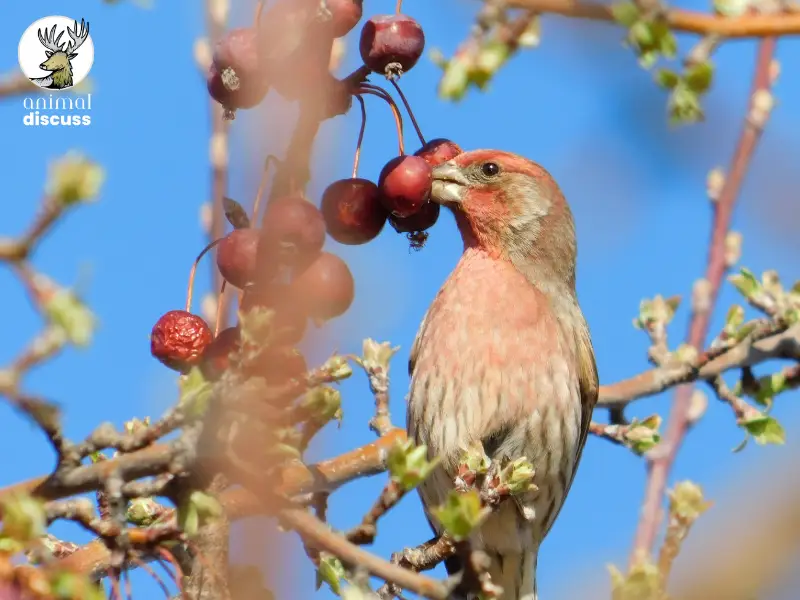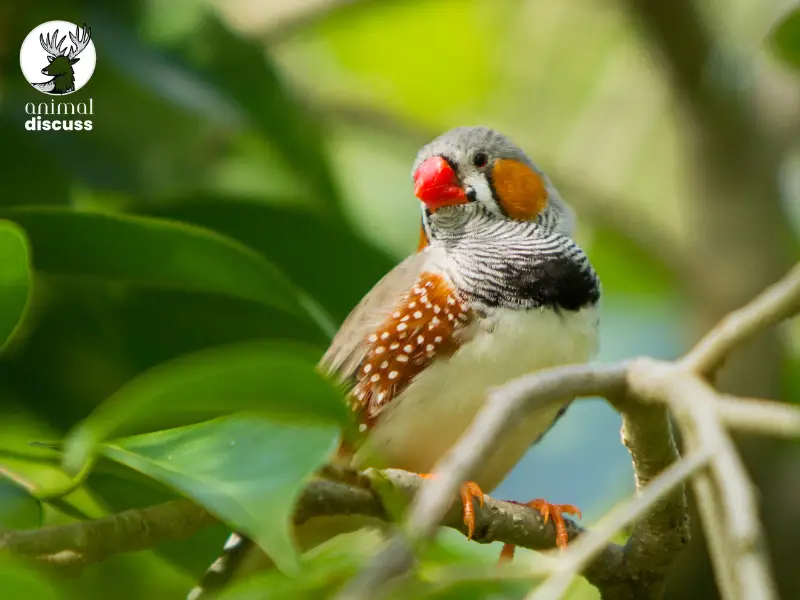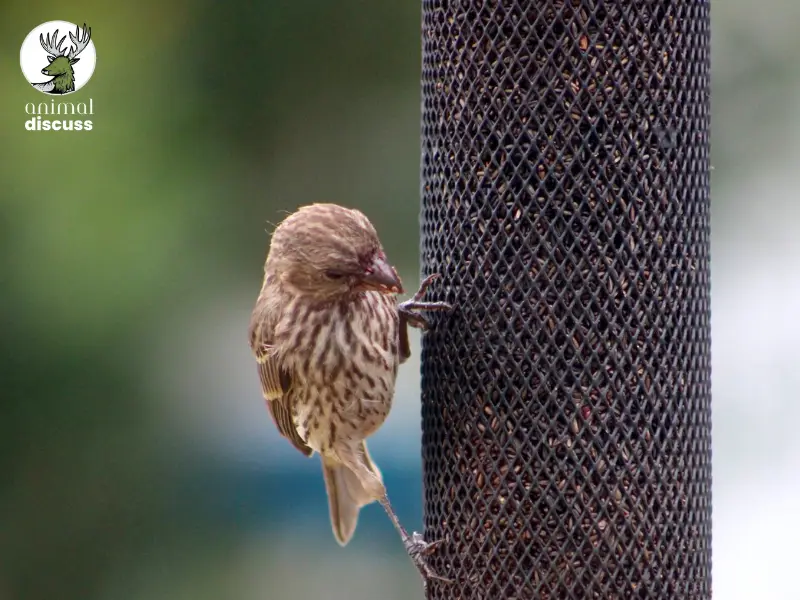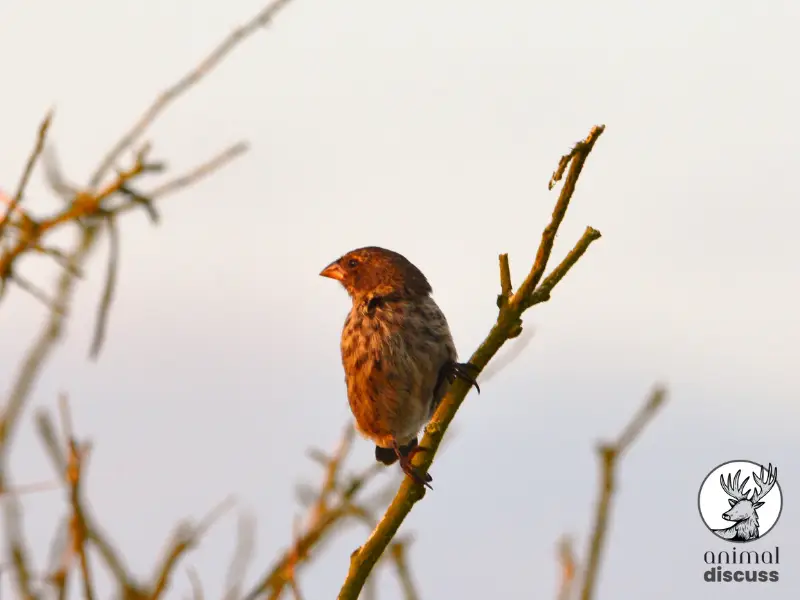Just like the babies of your home, finches can be picky eaters too! Umm, you might be confused. How is that so? Well, finches do have a versatile diet but get pickier when the food is not fresh.
Finches are omnivores but primarily granivores. Their diet includes varieties which is why you need to keep an eye on their bowl to understand what your finches favorite is. Moreover, keep dried or rotten seeds away from finches. And change their water bowl frequently.
However, in this article, I have tried to highlight which food and how much food you should feed to keep your finches healthy. Have a look at the details –
What Do Your Sociable Finches Love to Eat? (Reference)
Traditionally, it has been heard that Finches love to eat just seeds. But they eat a wide variety of foods, contrary to popular belief. I will talk in detail about what their diet consists of-
Beginning with the popular food which is the seed, such as
- Niger
- Finch seeds
- Black oil sunflower seed, etc.
In the wild grass seeds are their core of diet. But for pet finches, different commercial finch mixed seeds are available too!

These seed consumption suffice almost 50% of their diet. Dried and sprouting seeds fulfill the sufficient nutrition they need in their diet.
Some species like to eat seeds only whereas the other ones are omnivores. They eat insects like mealworms or young crickets which are smaller than a pea. And others consume both seeds, vegetables and fruits as mentioned above.
So other than seeds, finch birds enjoy eating a variety of fruits and vegetables such as
- Apple
- Banana
- Beetroot
- Blueberries
- Mango
- Papaya etc.
And vegetables like
- Broccoli
- Sweet potato
- Tomato etc.
Moreover, in order to ensure the healthy development of their young, the eggs-laying finches must consume insects. Their diet may consist of aphids, spiders, and tiny insects which give them an ample amount of energy.
However, do you know they eat eggs too? Every week add some cooked egg to their diet by mashing it. It will ensure calcium in their diet.
Whatever, want to know more about finches bird? Click on this article for more information.
What Kind of Food Is Not Eaten by Finches?
Though the list of finches eating any food is diverse, still some foods should be kept away from them. It might hamper their regular diet and make them sick.
For example –
- Alcohol
- Caffeine
- Fruits that are citrus in taste
- Lettuce
- Garlic
- Chocolates
- Tobacco
- Mushrooms
- Onions
- Sweet peas
- Uncooked beans, etc.
All these are of no nutritional value. So, it will cause digestive problems and loose droppings for them.
Why Do Finches Like Dried Fruit and Vegetables?
In the beginning, I have already mentioned that their diet has variations, haven’t I? Well, your pet finches can be treated with dried fruits and vegetables too.
We all know that different organic foods are nowadays filled with chemicals. Such as in mango, injections are inserted, and pesticides are given to make it look fresh.

Moreover, organic foods get rotten most of the time. That’s when a longer shelf life of canned dry food becomes their savior. Even the texture of it is liked by many finches.
The inclusion of new items can be a change to their regular pale menu. However, do not give them a bulk of sugary items to consume like raisins as it is not suitable for their diet.
How Much Should You Feed Your Finch? (References)
There is no easy math or short solution that you can repeat each time as their eating habit or consumption ability varies on various factors. However, you can follow up on the points below.
- Consider the bird’s weight. A good rule of thumb is to feed a finch 1/4 to 1/2 of its weight daily.
- Then, we all know that some finches are quite engaged in activity working. So, busier finches may have a somewhat higher caloric requirement than the other ones.
- Keep an eye on how frequently they eat and make sure the feeder isn’t overloaded. If you consistently provide them with additional seeds daily, you may be overfeeding them.
- You may need to feed your finch a bit more food if you see a difference in its weight. But rapid weight gain could indicate health issues, so it’s best to consult a vet if you notice this.
- Most importantly, the amount of seeds needed to keep most finches healthy is one to two teaspoons of a variety of seeds daily.
- About fruits and vegetables, their diet can consist of around 20%-25% of it. Though it will firstly intake their favorite seeds, try to give these two separately. So, they don’t get confused.
Other than that, the diet of any finch can be improved by supplementing it with formulated items. Feeding the birds specially prepared food ensures they get all the nutrients they need.
For each phase of a bird’s life cycle, there are different formulas available. Start by mixing the powdered food with seeds to help the birds adjust to it. A spoonful of this artificial food is effective daily.
Overall, for finches who share a cage, it’s best to provide them with individual feeding dishes. Thus, they don’t fight over food and can stay healthy.
How Do Finches Look for Their Food? (Reference)
Finches are small birds that get attracted to seed-bearing plants. That’s what they target in order to make their hunting food successful.

During the flowering and seed-setting seasons, you can encounter finches visiting your yard. For example- Goldfinches typically subsist on grass, flower heads (such as Black-Eyed Susans) and dandelion seeds. However, they will also consume the leaves and seeds of some plants.
Moreover, while looking for food, they demonstrate sociable behavior often flocking together. By flocking together, they can target the location where there is availability of food and remain safe at the same time.
But remember, the diet of finches is shifting. As in the winter season seeds are found in less quantity, that’s when they rely on fruits and buds.
Nutritional Requirements of Finches
Finches are social birds. They need sufficient nutritional benefits that can give these chirpy birds energy. That’s why their diet should definitely include the mentioned below elements.
First and foremost, carbohydrates are the sole fuel source for the nervous system and the primary source of energy for finches. Therefore, neurological symptoms manifest when carbs are insufficient.
Moreover, amino acids and proteins are essential building blocks for many biological structures, including feathers, bones, muscles, hormones, and enzymes.

Plus, protein is an additional source of energy. Because their bodies are unable to produce them, birds of all species require a daily supplement of 10 amino acids.
Such as lysine, arginine, histidine, methionine, tryptophan, threonine, leucine, etc.
As a last piece of advice, they need to load up on linoleic acid and other essential fatty acid-rich foods too.
In addition, they need to consume a variety of vitamin A, D, E, and K-rich foods as well as those rich in minerals such as calcium, phosphorus, magnesium, and iron.
Frequently Asked Questions
The food diversity of this little creature shows how versatile their diet is. Let’s look at some offered questions from you guys –
Why should finches’ feeders be cleaned regularly?
Finches will stay away from a filthy or moldy feeder if they can help it. When it rains, the seeds in the feeder can become clumpy and the birds won’t be able to remove them. So, keeping bird feeders clean attracts finches that are actively seeking food, which is good for their health.
Why do finches need variety in their diet?
Providing your birds with a variety of fresh foods helps prevent them from developing food preferences. And will also add excitement to their lives as they explore and anticipate new flavors.
Do finches drink water?
Yes. Always keep your pet finches hydrated. Put it in special bowls or feeders designed for them and attach them to the side of their cages.
How much does a finch drink per day?
Finches need water regularly, that’s true but need much less compared to others. Every day, they only need 15 ml (0.5 oz) of water.
How do finches eat seeds?
The strong, conical shape of the beak lets them crack easily to open the seeds. Some finches, such as the goldfinch, can easily pluck the seeds from thistle because of their narrow beaks.
Conclusion
While you’re keeping a bird in a cage, it solely becomes your responsibility to ensure the proper nutrition for it. But a different question arises when we think about it, right?
That’s what I’ve tried to cover. Besides seeds, try to include fruits and vegetables in their diet. Moreover, the nutritional portion if you keep it in mind will make it easier for you to detect the amount of food.

